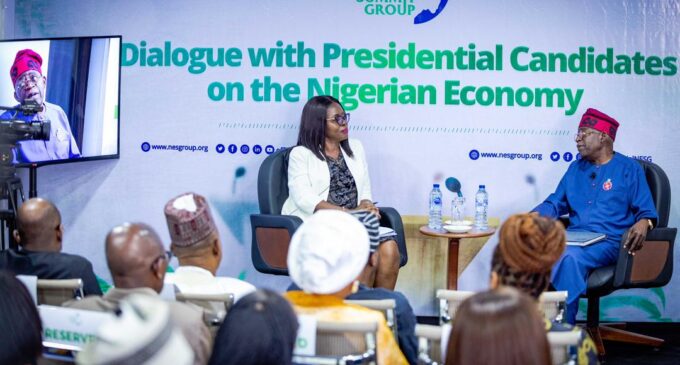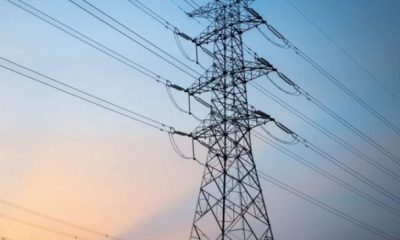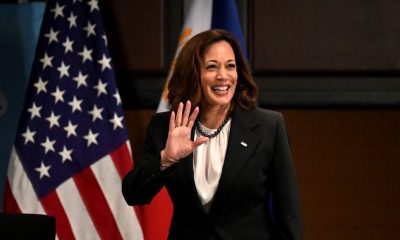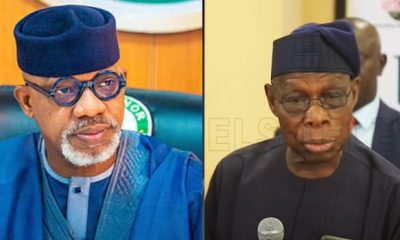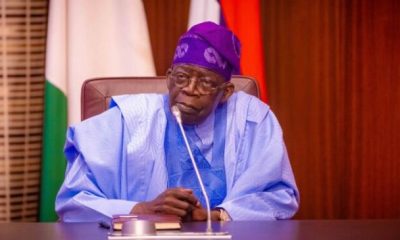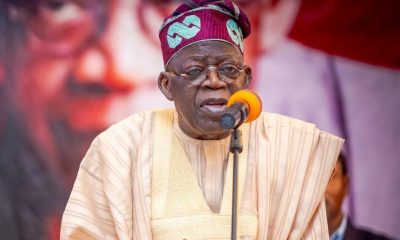Asiwaju Bola Tinubu, presidential candidate of the All Progressives Congress (APC), says there’s nothing bad in the country having a budget deficit.
Tinubu said this on Friday at a presidential dialogue organised by the Nigerian Economic Summit Group (NESG).
President Muhammadu Buhari recently signed the N21.83 trillion 2023 appropriation bill into law, with a deficit of about N11.34 trillion.
The government intends to finance the deficit mainly by new borrowings which would compound Nigeria’s public debt stock already at N44 trillion.
But according to Tinubu, the country’s budget deficit is “not necessarily bad”.
“I do not hold to the mainstream view that all forms of inflation are best tackled by interest rate hikes and shrinking the economy. Supply-induced inflation does not lend itself to this harsh medicine, just as one does not cure a headache by plucking out one’s eye, ” he said.
“I do not embrace the conventional wisdom that fiscal deficits by the national government are inherently bad. All governments, especially in this era of fiat currency, run secular budget deficits. This is an inherent part of modern governance. The most powerful and wealthiest governments run deficits, as do the poorest nations.
“A budget deficit is not necessarily bad. Look at the Japanese example with high government borrowing and low inflation. The real issue is whether deficit spending is productive or not. Unproductive deficit spending is a compound negative. Especially if backed by excessive borrowing of foreign currency. This is not classroom economics but it is the lesson of the real economic history of nations.”
SUBSIDY OUTLIVED ITS SHELF LIFE
Tinubu, further speaking on his economic agenda for the country, reiterated his to plans remove subsidy immediately he gets into office.
He said the existence of subsidy has outlived its stay, adding that the funds will redirected “into public infrastructure”.
“We must remove the PMS subsidy immediately. It has outlived its shelf life as a public good. We will neither subsidise neighbouring countries’ fuel consumption nor allow a select few to reap windfall profits and hoard products.
“And the subsidy money will not be ‘saved’ because that means elimination from the economy. Instead, we will redirect the funds into public infrastructure, transportation, affordable housing, education and health, and strengthen the social safety net for the poorest of the poor, thus averting increased security challenges.
“Fiscal policy will be the main driver. Monetary policy is weaker and a less effective instrument. Bad monetary policy is, of course, destructive. But even good monetary policy cannot carry the load the fiscal arm can. Thus, we must steadily remove ourselves from the fiction of tying our budgets to dollar denominated oil revenues.
“This is effectively pegging our budget to a dollar standard. It is as outdated as the fuel subsidy itself. It is also restrictive and ties the economy to slow growth. Just as the common man must mentally sever the cord to the subsidy, the elite must sever the cord to this artificial fiscal restraint.”
PRIVATISATION OF ECONOMY
Tinubu assured that if elected, the private sector would be the prime driver of economic progress of Nigeria with his administration providing the enabling framework for the sector to drive.
He also said before economic recovery could be achieved, the nation must be secured.
“First, to achieve the economy we seek, we must resolve the pressing security issues. No nation can flourish with terrorists and kidnappers in their midst,” he said.
“My core belief is that the private sector must be the prime driver of economic progress. However, the government establishes the framework within which the private sector must operate. If that framework is sound, the private sector will flourish. If the framework is frail or incomplete, then the private sector will struggle.
“For our industries to thrive, they need inputs, many of which are agriculture based. The present administration has invested heavily in agriculture, providing loans and expanding the country’s total area of cultivated land for crops, livestock and fisheries. We will also promote vibrant commodity exchanges that will guarantee minimal pricing for produce.
“We will build on this, with a focus on using technology and expertise to accelerate growth in yields. We will deliver the critical infrastructure necessary to achieve the commodity transformations and agribusinesses to plug seamlessly into higher, more lucrative, entry points in regional and global value chains.
“Building on this foundation, we will accelerate the faithful implementation of the “infrastructure master plan” by adopting proven financing structures till we deliver an acceptable stock of hard infrastructure through seaports and airports; and road, rail and water transportation linkages that can support our desired economic growth.
“Fixing the perennial problem of energy supply is a top priority. There is no version of the world where Nigeria’s ambitions for itself can be achieved without solving the problem of how to provide energy to homes and businesses across the country.
“What we need to do, going forward, is to improve the enabling environment, further decentralise transmission, and deliver cost reflective tariffs to attract more private investments in the sector.”
He added that his administration would, urgently address fiscal, monetary, and trade reforms to effectively increase domestic production by accelerating inclusive growth and job creation across Nigeria.
Tinubus said on his first 100 days, if elected, he would hit the ground running by selecting a team of technocrats that will help him run the country as he did when he was governor, adding that building a good team was important.

 News3 years ago
News3 years ago
 Entertainment2 years ago
Entertainment2 years ago
 News3 years ago
News3 years ago
 Privacy3 years ago
Privacy3 years ago
 Sports2 years ago
Sports2 years ago
 Entertainment2 years ago
Entertainment2 years ago
 Opinion3 years ago
Opinion3 years ago
 News3 years ago
News3 years ago
